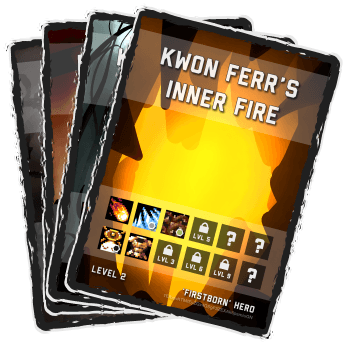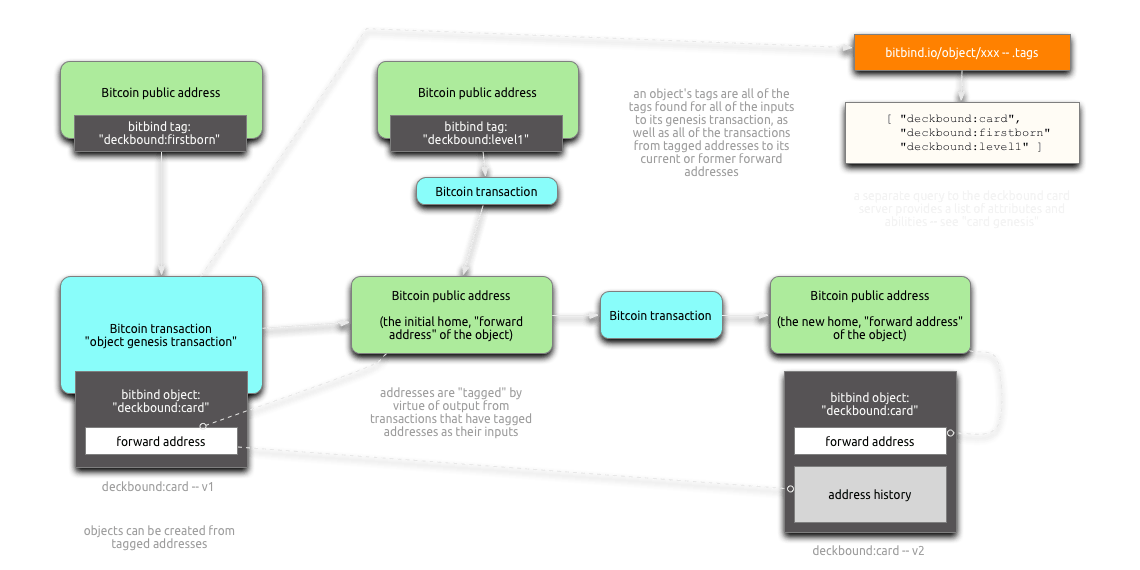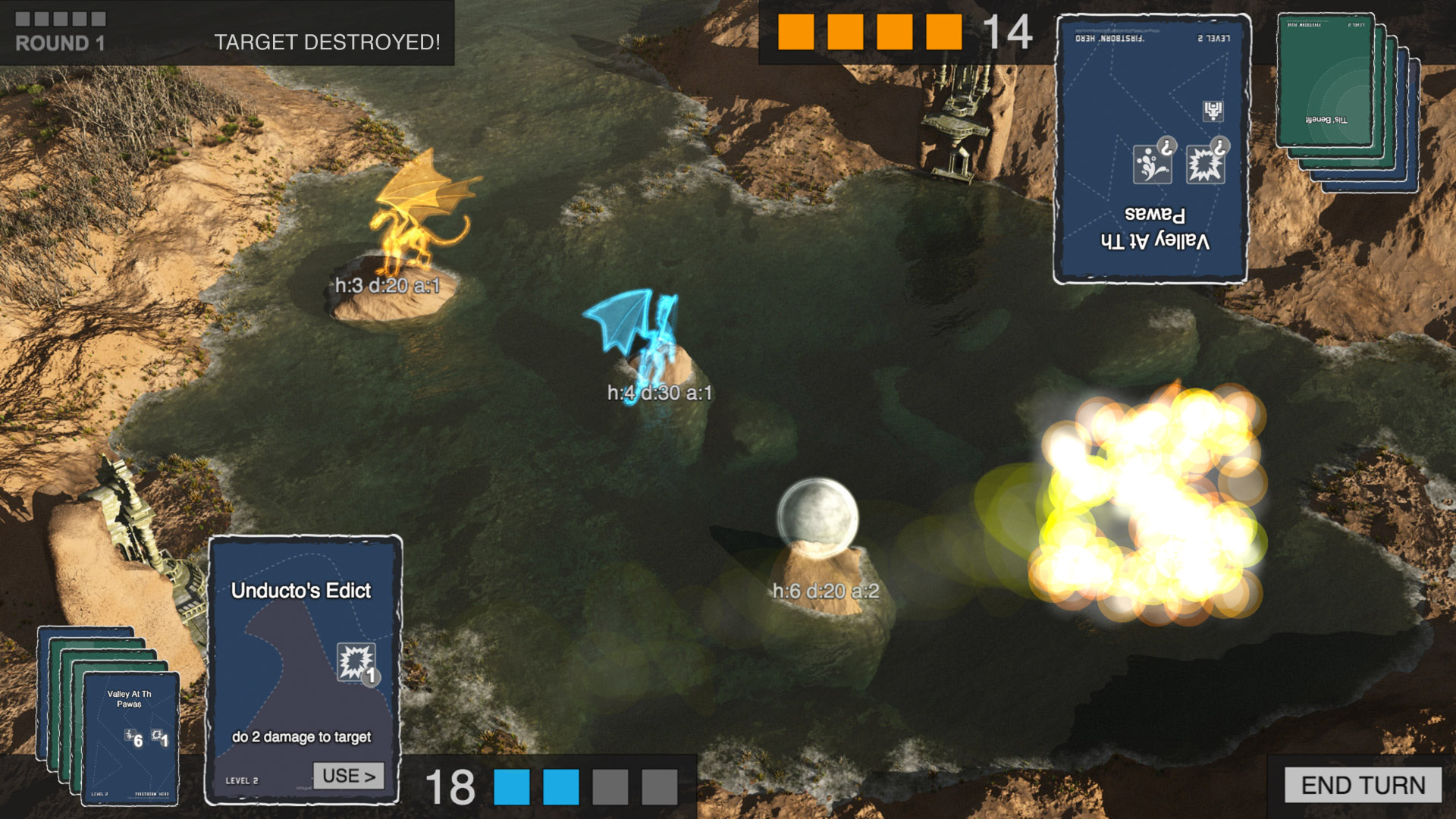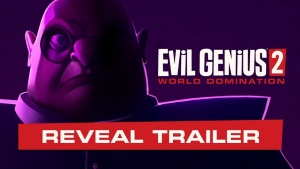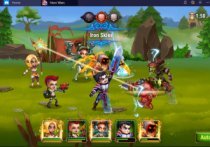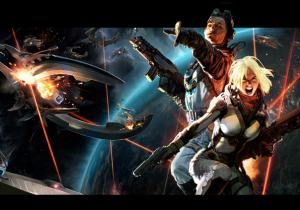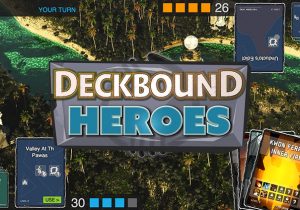Deckbound Heroes – PAX South 2016
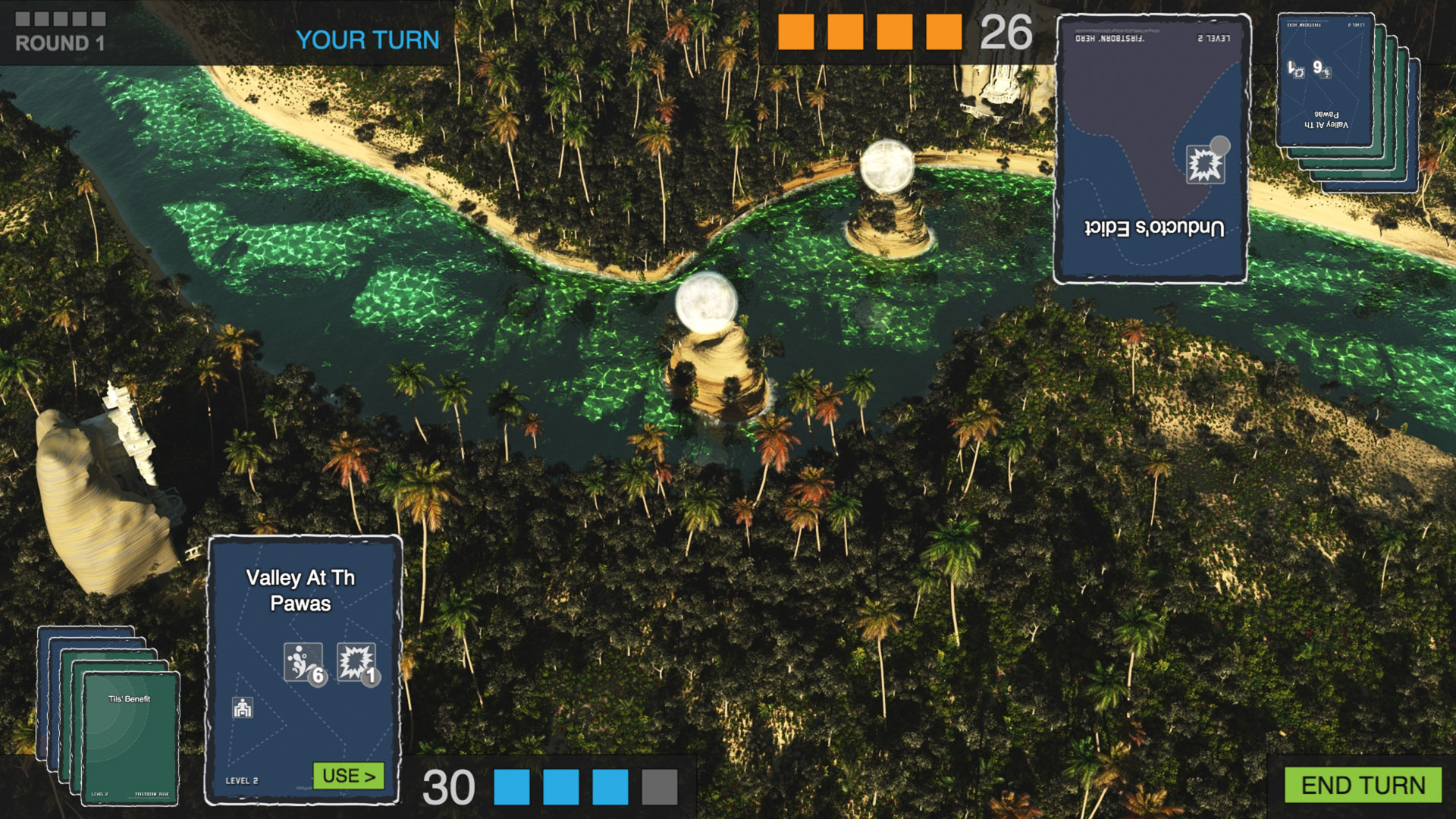
At its core, Deckbound is another digital trading card game, aligned more toward a classic deck dueling system than the modern Hearthstone variants. You have cards and hero health, and your task is to bring your opponent to zero before they do the same to you in a turn-based arena. But the way Deckbound is built makes the game so distinctly different; it can’t be compared easily to anything. In fact, rather than starting from gameplay and working down to the details, the best way to explain Deckbound is to start from its very foundations and work up. Thankfully, I was able to meet with Gareth Jenkins, Lead Developer of Deckbound, at PAX South to make this task a little easier.
The short summary: Deckbound is a free-to-play card battling game with unique cards formed using Bitcoin technology. If you understood that sentence, this’ll be a breeze. Otherwise, get comfortable – this is going to be a long one.
First: the cards. In just about any TCG or CCG you’ll play, cards are static pre-made objects. They’re crafted individually by the developers, and exist in theoretically infinite amounts, meaning that every player has access to the same cards across the entirety of the game. While limited edition cards exist, and players might be limited in how long or in which manners they can obtain cards, no trading card actually has a unique identity. Except in Deckbound.
Deckbound’s cards are all completely unique, created by a unique genesis system that leverages Bitcoin technology. No, this has nothing to do with Bitcoins themselves, so don’t worry about starting a Bitcoin farm in your basement. Instead it uses bitbind.io, a service that simply leverages the whole system to create unique identities for cards. It looks something like this:
For those of you who feel that just went all over your head, think of it this way: each card is procedurally generated and has a unique identifier which lets Deckbound do some awesome things that I’ll be touching on later.
Each Deckbound card is named and is generated with a selection of abilities. There are 1200 abilities in the pool to be chosen from, and this process, too, is an awesome little bit of technology. Abilities are seeded onto a “Genesis Block,” essentially a three dimensional star-map of abilities, and clustered together using a special algorithm that links abilities together based on common themes (like healing or direct damage). Each card begins at a location within this ability cube, and then reaches out to grab abilities from this origin point. While generating, cards typically grab abilities close to their origin point, thus resulting in cards with cohesively themed abilities. However on rare occasions they may reach out randomly further into the map to pull an unrelated ability. You can see an example of this system in action here.
To balance this, there’s another complex function at work that weighs the strength of abilities and the rarity of certain ability combinations to contain cards within reasonable parameters. Gareth admitted to me that these unique identities makes it challenging to balance cards on a universal scale outside of the weighting system. However, due to the highly unique nature of each cards, any card that does manage to be created “overpowered” will not be widely distributed and can be addressed by the team on an individual basis. Rare, powerful cards will still make it into the system as part of the intentional design, but nothing should be so grossly powerful it becomes an “I win” card.
Putting all of that together, what happens is this: each Deckbound card is created randomly with a unique identifier and a collection of skills (the range is pretty wide here, upward to about twenty in the current build). Now this is where the really awesome parts come in, because this unique identity allows for each card to be owned by a specific player and to have its own experience points.
Let’s look at the life of a card put in the game’s Nomad system, first. Deckbound has what’s called a “Nomad” pool, which is an open group of cards available for all players to borrow cards from. A new card generated into the Nomad Pool will wait until a player draws it from the pool to borrow, with no experience and most skills still locked from use. As that player enters matches, the card will gain experience, level up, and begin to unlock its skills. Should the card be returned to the Nomad Pool, it will keep that experience as it’s passed to another player. If a player likes the card, they can also purchase it from the pool to keep as their own.
It’s not just newly generated cards in the Nomad Pool, though. Players can also loan their cards into the pool, allowing them to gain experience as the card’s used by borrowers, and reclaim the card when they’re ready to use it again. Borrowers, meanwhile, can still look to purchase the card in offering a trade with its current owner. This makes the nomad pool an attractive place to put cards not only to gain experience while you’re offline, but to drop cards in hopes for a buyer.
Cards can either be borrowed from the Nomad Pool or purchased in packs. As a free-to-play game, Deckbound has no starter fee. However, players not wanting to purchase cards will be limited to borrowing from the Nomad Pool unless they get their hands on a pack through limited promotions. There is no “in game” currency that can be saved up to use to buy cards or packs; these will still have to be purchased with real money. This doesn’t technically limit gameplay, but it does mean that free players will not have any cards permanently at their disposal. Gareth indicated that currently the team plans on selling packs of five cards at about $1-$2 each.
Cards can also be used across multiple Deckbound games. Currently, only Deckbound Heroes, the card dueling game, is in testing, but Deckbound Quest, a single player RPG, is also in development.
Deckbound Heroes pits players on one of multiple maps against each other. Players have a base with health and between them are multiple conquerable outposts, each with their own health, durability, and skill power. Each outpost may have different abilities; on the river map I played, outposts had direct damage skills. Rather than playing your cards, you play the abilities on your cards, and both your abilities and your opponent’s abilities are available to see from the start. Each turn you can choose what abilities to use, in a total goal of knocking out your opponent’s health. Matches are a best two out of three.
Still in alpha, Deckbound Heroes will require plenty of testing to see a polished product come to light. But the systems behind Deckbound are ingenious, and make it worth getting in now. Early access is available with multiple starter packs, or you can sign up for the mailing list for a chance to get an invite.
Articles You May Enjoy
- DOOM Announces Details for Multiplayer Closed Alpha
- Today, Bethesda and id Software revealed details for the multiplayer Closed Alpha test for DOOM.
- Forsaken World: Nightfall Details
- Perfect World has announced details about the upcoming expansion to Forsaken World: Nightfall.


